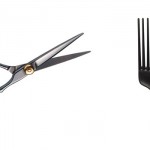
When it comes to money saving tips, it’s important to know that one size doesn’t fit all. There are general rules that can apply to anyone, but it’s also crucial to consider what works for you and where you are in life at the moment. Some may require significant lifestyle changes while others might not. If you’ve been on your money saving game for some time, these tips might just be a reminder. If you’re just starting out, do not worry, pacing yourself can be helpful here as the process comes with lifestyle changes.
It’s important to state that you don’t have to adopt all of these recommendations. As mentioned earlier, you must understand what works for you and how any of these can fit.
Where to start?
Create a budget: Start by tracking your income and expenses, then create a budget that helps you plan your spending and stick to your financial goals.
Cook at home: This is usually much cheaper than eating out, and it allows you to control the ingredients and make healthier choices.
Shop smart: Look for deals, discounts, and coupons when shopping for groceries or other items. Check out the OneWoman offering by Sterling Bank for access to cool discounts. Also, consider buying in bulk and avoiding impulse purchases.
Cut unnecessary expenses: Identify any expenses that are not essential and consider cutting them. For example, cancel subscriptions you don’t use, reduce your cable or phone bill, or avoid buying unnecessary items.
Use public transportation: Using public transportation or carpooling can save you a lot of money on gas, maintenance, and parking fees. If possible, use it.
DIY projects: Consider doing some DIY projects to save money on home repairs, decoration, or gifts.
Grow your own produce: If you have a garden or some outdoor space, consider growing your own produce. This can save you money on groceries and provide you with fresh, healthy food.
Shop second-hand: Consider buying second-hand items like clothes, furniture, or electronics. This can save you money and also help reduce waste.
Pay off debt: Try to pay off your debt as soon as possible, because it can save you a lot of money on interest fees.
Save for emergencies: Set aside some money each month for emergencies. This can help you avoid unexpected expenses and also give you peace of mind.







